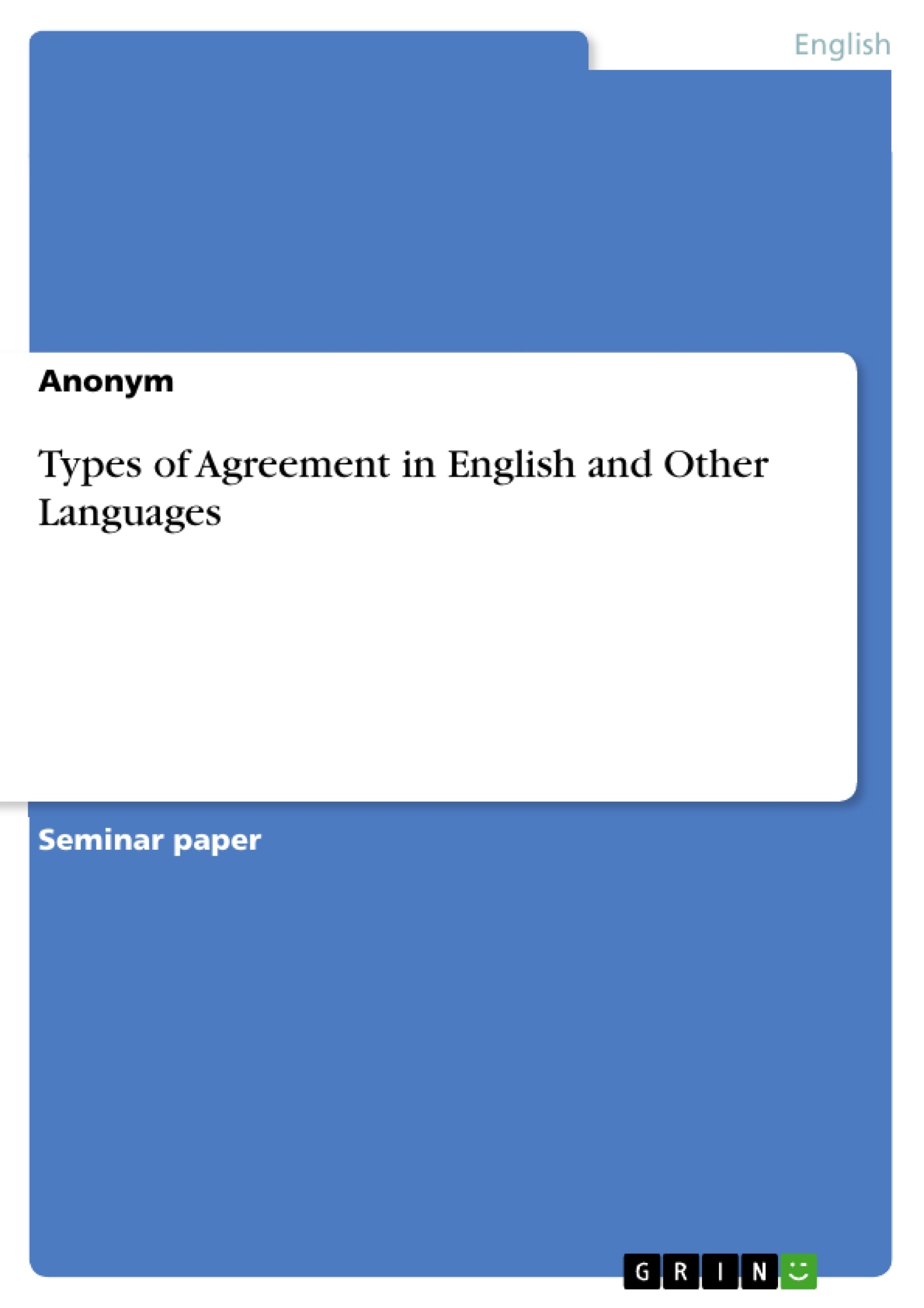In the following paper we are going to introduce you to some types of agreement and also compare agreement in the English language to a few other languages. English is considered one of the easier languages to learn as a second language. One of the reasons might be that English is an analytic language, which means that there are hardly any inflectional morphemes. Instead, the word order is crucial when trying to understand the meaning of a sentence. Yet, there are some cases in which certain types of words show inflection and where agreement plays an important role.
Table of Contents
- Introduction
- Definition of Agreement
- Types of agreements
- Subject-Verb Agreement
- Demonstrative Pronouns
- Relative Clauses
- Reflexive Pronouns
- Adjective-Noun-Agreement
- Conclusion
- References
Objectives and Key Themes
This paper aims to provide an introduction to the concept of agreement in linguistics, specifically focusing on its role in the English language. The paper explores different definitions of agreement and examines various types of agreement that exist within the English language.
- Definition of Agreement
- Types of agreement
- Subject-Verb Agreement
- Agreement in other languages
- Grammatical exceptions
Chapter Summaries
The introduction defines the concept of agreement and presents various perspectives on it. It also highlights the importance of agreement in understanding the grammatical structure of sentences.
The chapter on Subject-Verb Agreement delves into the agreement between the subject and verb in a sentence, explaining the rules and exceptions related to singular and plural forms.
Keywords
This paper primarily focuses on the concept of agreement in linguistics, particularly subject-verb agreement in English. It explores different types of agreement, grammatical exceptions, and compares agreement in English to other languages. The paper also touches upon the role of inflectional morphemes in determining grammatical relations within sentences.
Frequently Asked Questions
What is "Agreement" in linguistics?
Agreement (or concord) is a grammatical phenomenon where a word changes its form to match the properties (like number or gender) of another word in the sentence.
What is Subject-Verb Agreement?
It is the rule that a verb must match its subject in number. For example, in English, a singular subject takes a singular verb form (e.g., "She walks").
Why is English considered an analytic language?
English is analytic because it relies more on word order than on inflectional morphemes (endings) to convey grammatical meaning.
What other types of agreement exist in English?
Besides subject-verb agreement, there is agreement in demonstrative pronouns (this/these), relative clauses, reflexive pronouns, and adjective-noun relations.
How does English agreement compare to other languages?
Compared to many other languages, English has relatively few inflections, making its agreement system simpler in many aspects.
- Arbeit zitieren
- Anonym (Autor:in), 2014, Types of Agreement in English and Other Languages, München, GRIN Verlag, https://www.grin.com/document/1307360



